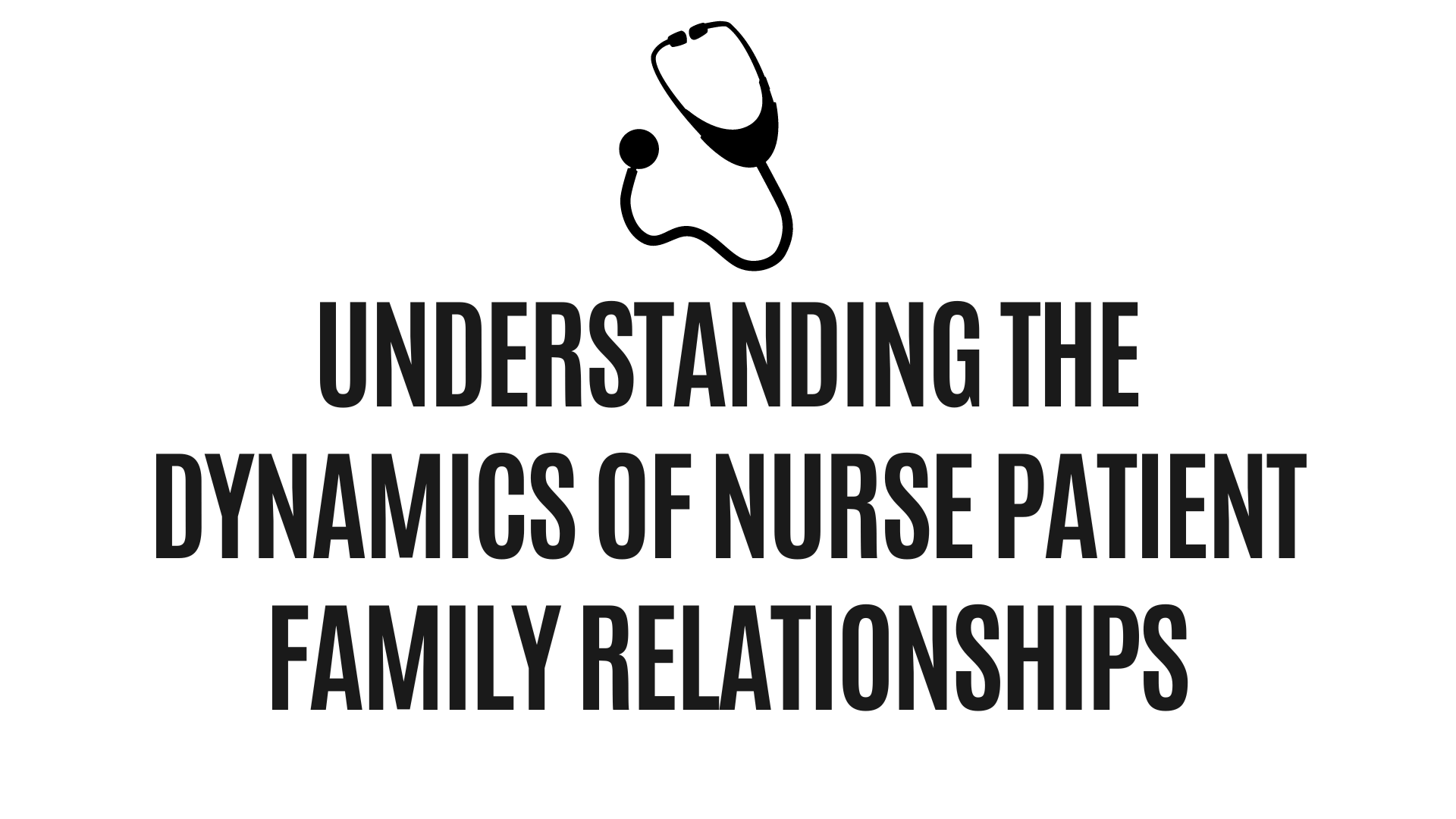In the realm of healthcare, particularly in hospitals and long-term care facilities, nurse-patient-family relationships play a pivotal role in ensuring optimal patient outcomes and satisfaction. These dynamics are multifaceted, involving not only the direct interaction between nurses and patients but also the inclusion of family members as integral components of the care team. Understanding the complexities of these relationships is essential for healthcare providers to deliver patient-centered care effectively. In this comprehensive guide, we delve into the dynamics of nurse-patient-family relationships, exploring their significance, challenges, and strategies for fostering positive interactions.
The Significance of Nurse-Patient-Family Relationships
The Foundation of Patient-Centered Care
Nurse-patient-family relationships form the cornerstone of patient-centered care, which prioritizes the individual needs, preferences, and values of patients. By involving family members in the care process, nurses can gain valuable insights into the patient’s background, social support system, and potential barriers to treatment adherence. This holistic approach enables healthcare providers to tailor interventions that align with the patient’s overall well-being, leading to improved clinical outcomes and enhanced patient satisfaction.
Enhancing Communication and Collaboration
Effective communication is fundamental to building trust and rapport between nurses, patients, and their families. Transparent and empathetic communication fosters a supportive environment where patients feel heard, understood, and valued. Additionally, involving family members in care discussions promotes collaboration and shared decision-making, empowering patients to actively participate in their treatment plans. Strong communication channels also facilitate the exchange of vital information, such as medication instructions, discharge plans, and post-discharge follow-up, ensuring continuity of care beyond the hospital setting.
Table: Key Elements of Nurse-Patient-Family Relationships
| Key Elements | Description |
|---|---|
| Trust and Rapport | Building a foundation of trust and rapport through empathy, active listening, and cultural competence. |
| Communication | Facilitating transparent and empathetic communication to foster collaboration, shared decision-making, and continuity of care. |
| Education and Empowerment | Empowering patients and their families with knowledge, resources, and support to actively participate in their healthcare journey. |
| Role Clarification | Establishing clear boundaries and roles to maintain professional standards, ensure patient confidentiality, and prevent role confusion. |
Challenges in Nurse-Patient-Family Relationships
Conflicting Perspectives and Expectations
One of the primary challenges in nurse-patient-family relationships stems from conflicting perspectives and expectations regarding care delivery. While healthcare professionals prioritize clinical outcomes and adherence to medical protocols, patients and their families may prioritize emotional support, comfort, and quality of life. Bridging these divergent viewpoints requires effective communication, empathy, and cultural sensitivity to address the psychosocial needs of patients and their families while ensuring clinical efficacy.
Boundary Setting and Role Clarification
Maintaining professional boundaries while engaging with patients and their families is essential to uphold ethical standards and prevent role confusion. Nurses must navigate the delicate balance between providing compassionate care and preserving professional boundaries to avoid overstepping their roles or compromising patient confidentiality. Similarly, family members must recognize and respect the expertise of healthcare providers while actively participating in care discussions and decision-making processes.
Strategies for Fostering Positive Nurse-Patient-Family Relationships
Establishing Trust and Rapport
Building trust and rapport forms the foundation of positive nurse-patient-family relationships. Nurses can achieve this by demonstrating empathy, active listening, and cultural competence in their interactions. Taking the time to engage in meaningful conversations, address concerns, and validate emotions fosters a sense of partnership and mutual respect. Additionally, acknowledging the expertise and contributions of family members in the care process strengthens collaboration and enhances patient-centered care delivery.
Promoting Education and Empowerment
Empowering patients and their families with knowledge and resources is key to fostering autonomy and self-management. Nurses play a vital role in providing education about the patient’s condition, treatment options, and self-care strategies in a clear and accessible manner. By equipping patients and their families with the necessary information, skills, and support systems, nurses enable them to make informed decisions and actively participate in their healthcare journey.
Conclusion
Nurse-patient-family relationships are dynamic and multifaceted interactions that significantly influence the quality of care and patient outcomes. By recognizing the importance of these relationships and implementing strategies to enhance communication, collaboration, and trust, healthcare providers can deliver patient-centered care that addresses the holistic needs of individuals and their families. As the healthcare landscape continues to evolve, nurturing positive nurse-patient-family relationships remains essential for promoting optimal health and well-being.

